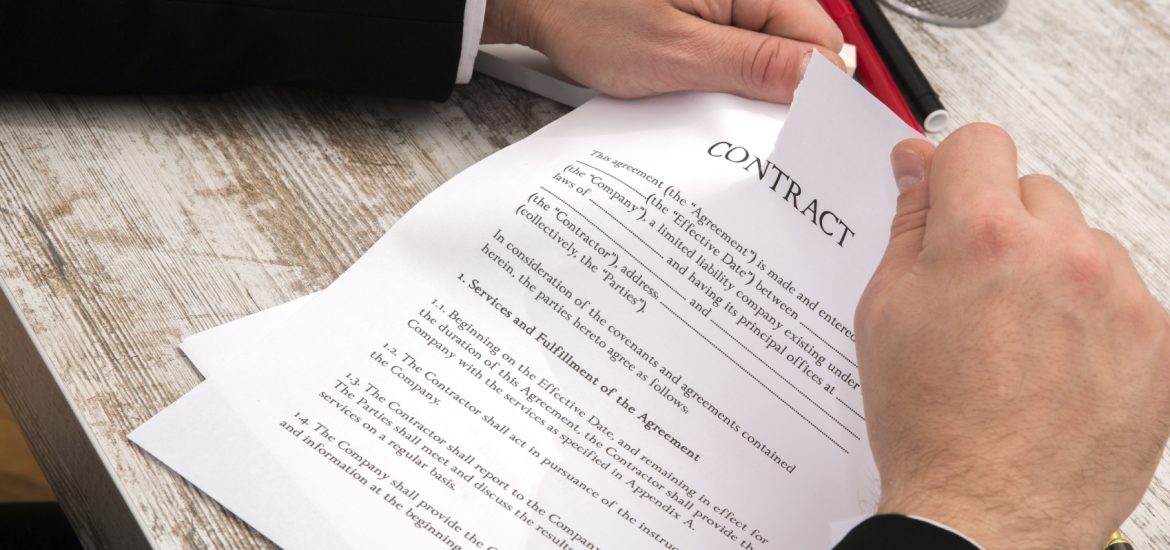Businesses and individuals are not perfect – there are often setbacks that occur causing delays and other issues that prevent parties from carrying out their side of an agreement or contract. If they do not meet their obligations, a breach of contract has occurred. You have several options when dealing with breaches of contract.
A breach of contract is when obligations that are outlined in an agreement between certain parties are not met. If any party fails to fulfil any part of their contractual obligation, it is known as breaching the contract. Depending on how you have outlined your contract, breaches can occur when there is a failure to perform duties within a given time. They can also happen when obligations are not performed in accordance with terms written in the agreement.
What happens when a contract is breached?
When a contract is allegedly breached, parties may want to enforce the contract on their own time or recover money lost or risked by the breach of contract. If there is a dispute that cannot be resolved, it is common for many people to turn to a lawyer. A well-qualified law professional like those at weisblattlaw.com can help parties build a case and defend their assets and investments. If the amount of money involved is less than a certain amount, the matter may be handled in small claims court.
There are, however, other options for individuals involved in disputes regarding breaches of contract. A mediator can review the dispute and may be able to resolve the dispute. These methods keep you out of court and save you time as well as money.
Resolving a Breach
When a company or person breaches contract, the other party involved has rights to relief. Remedies for breaching a binding contract are:
- Damages: Damages may be paid in some form by the party that breached the contract. Damages may include compensatory, punitive, nominal, and liquidated damages. Compensatory damages work by putting the party that did not breach the contract in the same position they would be in had the breach not occurred. Punitive damages involve the breaching party making payments to fully compensate the other party. Nominal damages are awarded when the breach occurs, but no money was lost. Liquidated damages are reasonable estimates of how much damage results from a breach.
- Specific Performance: If you cannot claim damages then specific performance allows the non-breaching party to be placed in the position they would be in if the breach did not occur.
- Restitution and Cancellation: The party that has not breached the contract can cancel it and sue the breaching party for restitution. The contract will be voided, and the parties will no longer have any obligations.
You should get the legal help that you need when there is any breach of contract. Look for a qualified lawyer to deal with your contractual issues when they occur. Proceed in the proper way and handle everything the way it should be handled to avoid miscommunications when a breach occurs.
